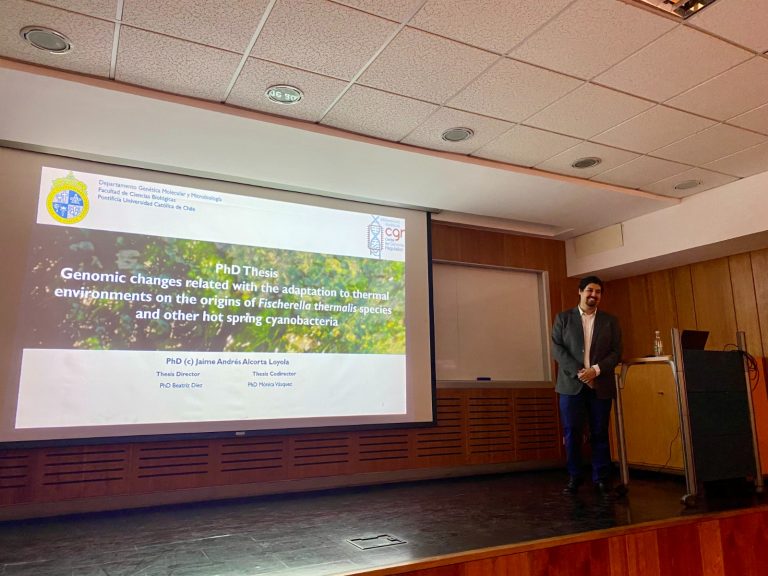In an outstanding academic event, the student Jaime Alcorta, from the Doctoral Program in Biological Sciences with emphasis in Molecular Genetics and Microbiology of the Pontificia Universidad Católica, and from the CRG successfully presented his doctoral thesis entitled “Genomic changes related with the adaptation to thermal environments on the origins of Fischerella thermalis species and other hot spring cyanobacteria”.
His research focused on the recovery and analysis of 57 genomes assembled from metagenomes (MAGs) of cyanobacteria collected from 21 hot spring samples from around the world. The results revealed that these MAGs exhibited distinctive characteristics, such as reduced size and proteins with different properties compared to genomes of phylogenetically close non-thermal cyanobacteria.
In addition, 4 strains were sequenced and 19 MAGs of the genus Fischerella were recovered. This analysis identified evidence of lateral gene transfer in the origin of thermal clades, suggesting a strategy of genome stabilization and reduction in cyanobacteria adapted to thermal environments, in contrast to non-thermal cyanobacteria, which tend to expand their genomes.
The relevance of this thesis lies in its ability to shed light on the genomic fingerprints associated with niche transitions, a crucial knowledge in a world facing increasing challenges in terms of adaptation for all organisms.
We congratulate Dr. Alcorta for his outstanding research that helps us to understand the dynamics of microbial communities.

